Latin America
Related: About this forumLearned some history today looking for info. on Nazi Klaus Barbie, aided by US Gov't in hiding in Bolivia after WWII:
New York Times archives, concerning the "Butcher of Lyons" as he was known during the 1940's:U.S. SAYS ARMY SHIELDED BARBIE; OFFERS ITS 'REGRETS' TO THE FRENCH
By Stuart Taylor Jr., Special To the New York Times
Aug. 17, 1983
About the Archive
This is a digitized version of an article from The Times’s print archive, before the start of online publication in 1996. To preserve these articles as they originally appeared, The Times does not alter, edit or update them.
Occasionally the digitization process introduces transcription errors or other problems; we are continuing to work to improve these archived versions.
The United States said today for the first time that the Army had hidden Klaus Barbie, a former Gestapo officer wanted by the French for war crimes, employed him as a spy in Germany and then helped him escape to Bolivia.
The chief White House spokesman, Larry Speakes, said that a formal note expressing the ''deep regrets'' of the United States for the concealment of Mr. Barbie was delivered by the State Department to the French Embassy Friday.
It was the first official admission by the United States that the Army had helped Mr. Barbie avoid prosecution and had employed him for its own purposes. Mr. Barbie has been called the ''butcher of Lyons'' for his activities in that French city during World War II. Five-Month Investigation
The findings were in a 218-page report issued today by the Justice Department. The report concluded a five-month investigation ordered by Attorney General William French Smith in response to charges raised in France and the United States that Mr. Barbie had been employed as a spy by American intelligence officials and that he received American assistance in escaping to Bolivia in 1951.
. . .
After helping Mr. Barbie flee from Germany to Italy and putting him and his family on a ship from Genoa to Bolivia in 1951, Mr. Ryan said, the Army severed its relationship with him. Did Not Know of War Crimes
https://web.archive.org/web/20221229144935/https://www.nytimes.com/1983/08/17/world/us-says-army-shielded-barbie-offers-its-regrets-to-the-french.html
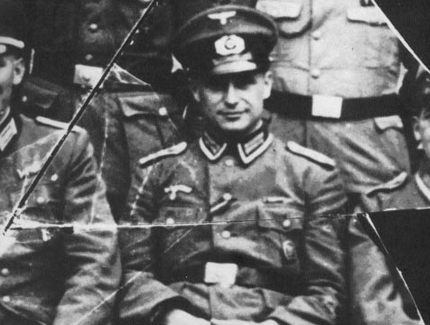
Klaus Barbie
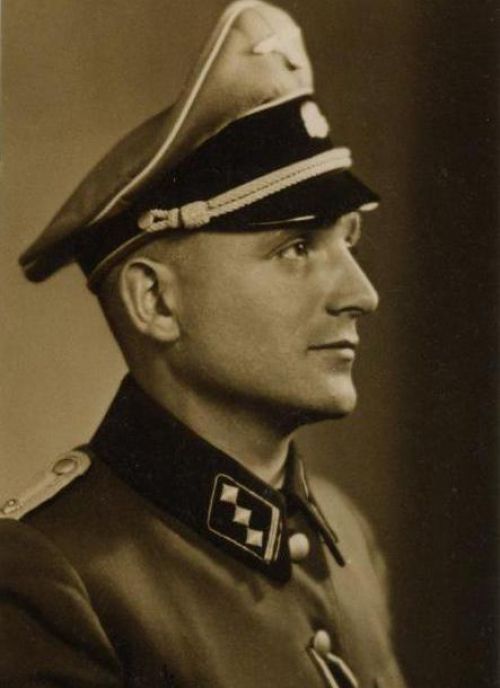
Klaus Barbie

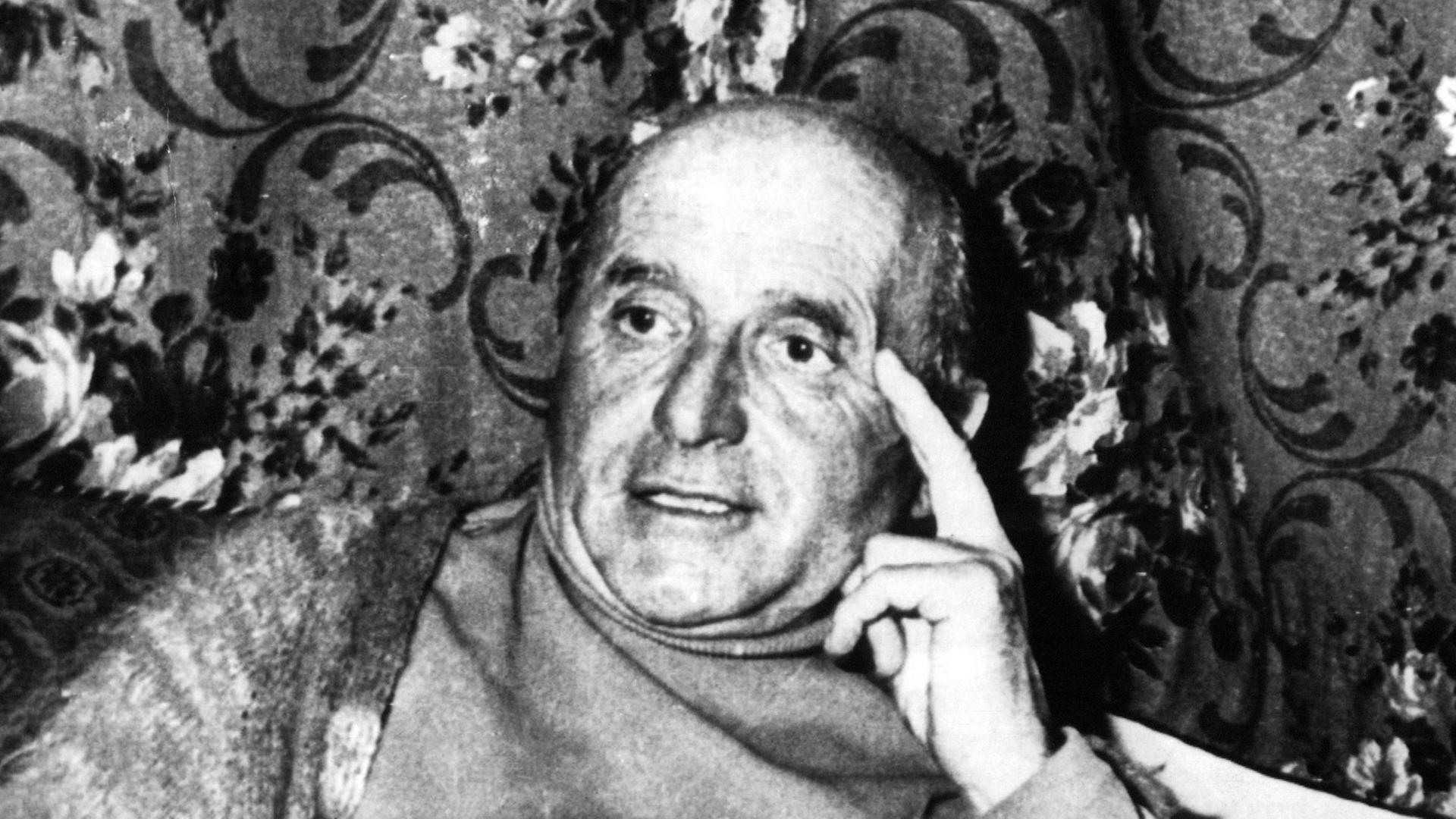
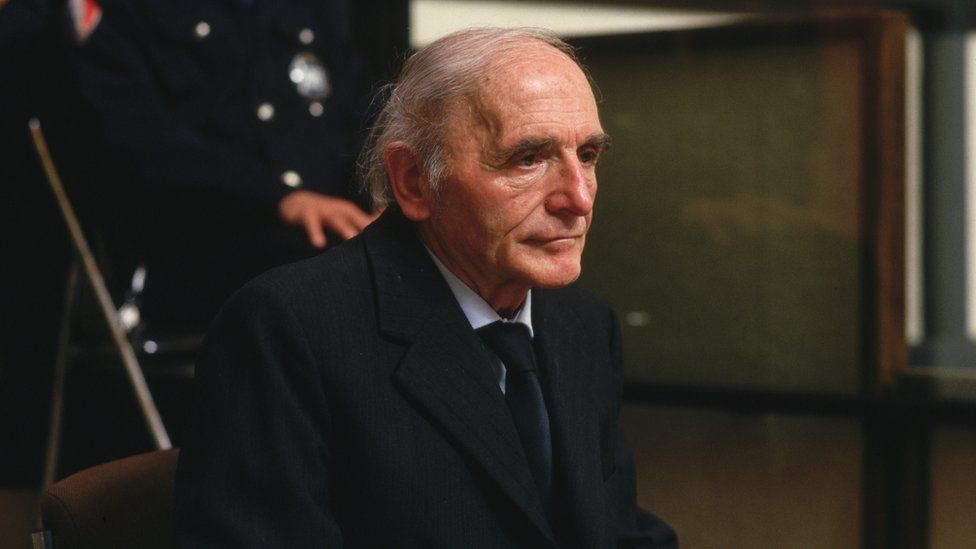
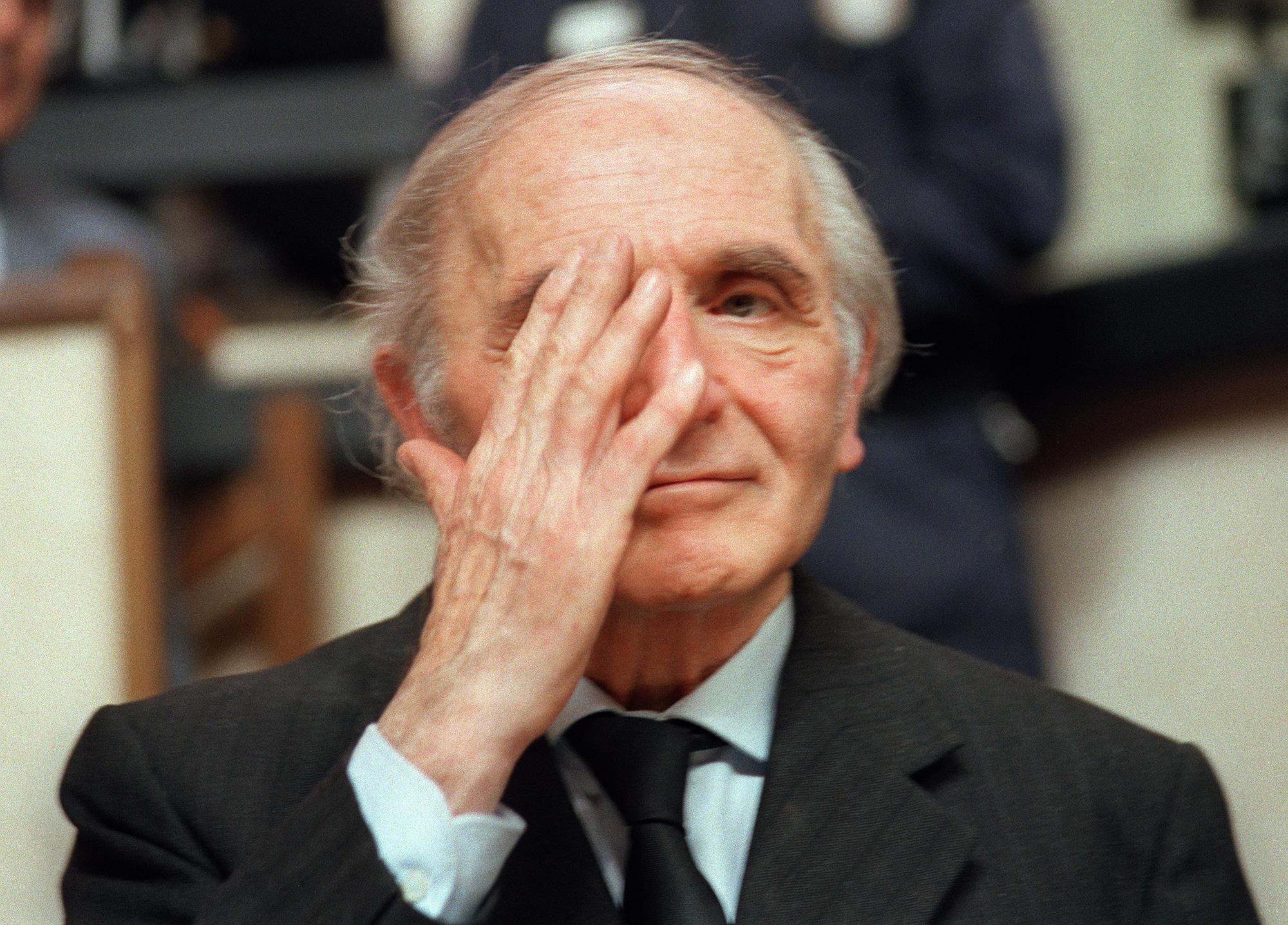
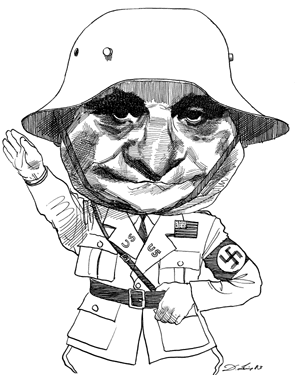
Chainfire
(17,757 posts)We also managed to overlook certain Nazi scientists that built our space program....among others.
https://video.search.yahoo.com/search/video?fr=mcafee&p=but+i+did+what+i+did+before+love+came+to+town+song&type=E210US0G0#id=1&vid=142398ac67c0513576038ec6fe39a4e1&action=view
Judi Lynn
(162,384 posts)Can't believe I never heard that song before seeing your post. Unbelievable! BB King!
Had to hear it again 2 more times, found the same video with words at YouTube:
🎼🎶🎵Maybe I was wrong to let you down,
But I did what I did before love came to town! 🎶🎵🎶
Chainfire
(17,757 posts)Judi Lynn
(162,384 posts)Wed 10 Sep 2008 04.00 EDT
For decades here in Bolivia we had an infamous tradition of ruthless dictators. In the early 70s General Hugo Banzer siezed power. He turned to the ex-Nazi Klaus Barbie to help him with the repression. It was not the first time that Barbie, a war criminal wanted by the French and German authorities, had mingled with hardliners. Here in Bolivia he used to do big business with the drug lords. He had his own team of assassins, some from Italy and others from Argentina, called the Grooms of Death. He also sold them weapons.
American intelligence officials helped Barbie to become established in Bolivia as part of their crusade against communism. He acted as a sort of counter-intelligence official. Under the alias of Klaus Altmann he worked primarily as an interrogator and torturer. He also helped in the same way in Peru. He did the same things here as in Germany and France. For him the word communist meant "dead". Many Bolivians died during that dictatorship; one that was prolonged for more than 10 years. Barbie was in charge of the murders of many Bolivian citizens, including priests and members of the opposition.
So some of us felt that we had to do something about it. But in 1980, after General Banzer, an even bloodier dictator, Luis García Meza, rose to power in what was called the narco, or cocaine, coup. Barbie was a key aide then. He was the main ideologue of that coup; he organised absolutely everything. He was even given the rank of lieutenant colonel in the Bolivian armed forces, and was then able to move around with total impunity. Today Bolivians know all about Barbie, but for a long time many even doubted that such a criminal could be here.
More:
https://www.theguardian.com/world/2008/sep/10/bolivia-germany
This article links the following article:
Klaus Barbie: women testify of torture at his hands
from the Saturday, March 23, 1987 issue of The Philadelphia Inquirer
LYON, France--In 1944, when she was 13, Simone Lagrange testified yesterday, Klaus Barbie gave her a smile as thin as a knife blade, then hit her in the face as he cuddled a cat at the Gestapo headquarters in Lyon.
Lise Lesevre, 86, said Barbie tortured her for nine days in 1944, beating her, nearly drowning her in a bathtub and finally breaking one of her vertebrae with a spiked ball.
Ennat Leger, now 92, said Barbie "had the eyes of a monster. He was savage. My God, he was savage! It was unimaginable. He broke my teeth, he pulled my hair back. He put a bottle in my mouth and pushed it until the lips split from the pressure."
The three women were among seven people who took the witness stand yesterday to testify against Barbie, the former head of the Gestapo in [Paris] during the Nazi occupation of France in World War II.
Barbie, 73, is on trial in Lyon, accused of torturing Jews and members of the French Resistance and deporting them to Nazi death camps.
But he did not hear their testimony because he has refused to attend the courtroom sessions since the second day of the trial, as he may do under French law.
He has, however, denied the accusations against him and has contended that his 1983 extradition from Bolivia to France was illegal.
Several of the seven witnesses yesterday sobbed as they told of arrest, torture, rail convoys to the Drancy collection center near Paris and on to concentration camps.
They depicted Barbie as a harsh, sadistic officer ready to resort to any cruelty to extract information.
More:
https://www.writing.upenn.edu/~afilreis/Holocaust/barbie.html
Judi Lynn
(162,384 posts)
04 Nov, 2012 | Laetitia Grevers
History & Politics
After WWII, the infamous Nazi Klaus Barbie found sanctuary in Bolivia, where he influenced national politics, helped overthrow a democratic government, and profited from the drug trade
Again, the topic of the Nazis’, says Nicolas Bauer, the president of Club Aleman, in an impatient voice. He lights another cigarette. ‘Well, what else could I have expected from someone who wants to write about German immigrants?’ For Bauer, it is difficult to say which of the Germans was not a Nazi before the end of World War II. Many Germans who immigrated before 1945 came to spread the Nazi way of life in Bolivia discreetly – several also came after 1945. In particular, many German teachers immigrated during the 1930s and 1940s and spread the National Socialist ideology. Ironically, many German Jews also immigrated to Bolivia during and after the war.
After the war, several ex-Nazis escaped to South America and Bolivia via ‘ratlines’, the notorious escape routes for Axis war criminals that were organized by members of the Catholic Church. US intelligence agencies also assisted, using the fugitives as assets during the Cold War. Among the most notorious was Klaus Barbie, the former chief of the Gestapo in Lyon. Barbie, the ‘Butcher of Lyon’, tortured French Resistance leader Jean Moulin to death during the war, and was the man responsible for the deportation of 44 Jewish orphans to Auschwitz and their subsequent deaths. ‘I came to kill’ was the first thing he said upon reaching France. In Bolivia, Barbie became a tireless hustler and eccentric, wheeling and dealing with the German business community, politicians, and arms and drug traffickers. He held court in the Club La Paz near Plaza San Francisco, where former Nazis would meet with him to discuss old times.
During his stay in Bolivia, Barbie (who went by the name of Altmann) worked for the Department of the Interior as a lieutenant colonel and as an instructor for the Bolivian security forces, teaching them the finer points of torture and ‘disappearance’ of political dissidents. Together with Hans Stellfeld, another ex-Nazi officer, Barbie was instrumental in the ascendance of General Luis Garcia Meza Tejada, who took over the country as a dictator after a coup d’état in 1980. Called the ‘Cocaine Coup’, this takeover was financed through deals with wealthy cocaine producers in Santa Cruz, who gave kickbacks to Garcia Meza; Barbie was responsible for eliminating rival drug lords through his paramilitary group ‘the Fiancés of Death’.
In 1983, after the restoration of the civilian government in Bolivia, Barbie was finally arrested and extradited to France. He was condemned to life in jail and died there in 1991. His surviving family lives in Germany still. His Nazi comrades do not. They are still at home in Bolivian society. And they do not want to hear about the past.
. . .
Bolivians avoid acknowledging fascism’s bloody history because it was deeply rooted in their own political system for several years. The Bolivian Socialist Falange, established in 1937, was the country’s second-largest party between approximately 1954 and 1974. It was particularly strong in Santa Cruz and La Paz. One of the first sights Barbie saw after his arrival in La Paz was a march by FSB members. He later claimed that the sight of the uniformed, armband-wearing militants giving the Roman salute made him feel at home, and he soon sought out the party’s leading members and became close to them.
More:
https://bolivianexpress.org/blog/posts/the-butcher-of-bolivia
Judi Lynn
(162,384 posts)JULY 1, 1987
FAIR
On the eve of the French trial which recently convicted Klaus Barbie of war crimes, a New York Times Magazine piece (5/10/87) by Ted Morgan chronicled Barbie’s alliance with American intelligence during the early years of the cold war. Citing declassified US government documents, Morgan reports that Klaus Barbie escaped to South America on a “rat line” supervised by the Vatican and the CIA.
One error in an otherwise excellent article, when describing Barbie’s 32-year exile in Bolivia: “Barbie led a normal businessman’s life as a member of La Paz’s large German colony, under the protection of successive Bolivian regimes.” While adding that Barbie remained an unrepentant Nazi, Morgan failed to mention Barbie’s continuing role as a CIA asset. Nor was this indicated in the Times article (7/4/87) which listed the “key dates” in the Barbie case.
During the 1970s, Barbie served as an adviser to Bolivian strongman Gen. Hugo Banzer, a staunch US ally. According to The Nazi Legacy, coauthored by a team of journalists from the London Times and London Observer, the Bolivian Interior Ministry passed information to the CIA that had been supplied by Barbie.
. . .
Barbie was instrumental in the Bolivian “cocaine coup” which installed a fascist military junta in 1980. He was one of the leaders of the “Fiancés of Death,” which trained Bolivian security forces in torture techniques and helped protect the cocaine trade that financed the junta’s activities. Barbie’s CIA contact during this period, according to Der Spiegel, was Tom Ward, an employee of CAUSA, the political arm of the Moonies.
More:
https://fair.org/extra/klaus-barbie-the-businessman/
Judi Lynn
(162,384 posts)By Claudia Levy
September 26, 1991
Klaus Barbie, 77, the former Gestapo official who evaded justice for four decades before being condemned to life in prison four years ago for crimes against humanity, has died of cancer in a prison hospital in Lyon, French officials announced yesterday. The announcement did not give the date of his death.
Known as "the Butcher of Lyon" for his hand in the torture, deportations and deaths of 4,000 Jews and Resistance fighters during World War II, the former German intelligence chief in Lyon was twice given the death sentence in absentia by French courts.
. . .
Barbie, quoted by the German magazine Stern in 1979 as saying, "I regret each Jew I did not kill," was accused of ordering the execution of more than 4,000 people and the deportation of 7,000 French Jews to concentration camps from 1942 to 1944. Barbie also was described by eyewitnesses as having savagely beaten the leader of the French Resistance, Jean Moulin, before sending him off on a death train to Germany. Others said Barbie tortured and beheaded victims.
. . .
He was the first person tried under a French law stating that Nazi officers and soldiers responsible for abominable crimes "should be pursued to the ends of the earth . . . . " Barbie said in court that he had acted as any German officer would have in wartime.
The prosecutors took pains to establish Barbie's personal responsibility for the specific crimes, with maimed, disfigured witnesses testifying to torture at his hands day after day. The names of all the Jewish children shipped to Auschwitz were read. Barbie, his head bowed, listened to the litany with his face pale and his features set.
. . .
After settling in Bolivia, he opened a sawmill, and later began advising Bolivian military officials and extremists in Argentina. A former Bolivian official testified at his 1987 trial that Barbie founded a rightist death squad, consorted with drug traffickers and helped right-wing leaders get intelligence and arms while in Bolivia. His cover was blown after the Klarsfelds circulated his picture to newspapers around the world.
https://www.washingtonpost.com/archive/local/1991/09/26/war-criminal-klaus-barbie-dies/c4556c51-6844-491a-8a4d-8ec8ca66fc49/
. . .
- click on link below for illustration of Barbie at the site of one of his favorite jobs -
https://m.media-amazon.com/images/W/MEDIAX_792452-T2/images/I/81Zelhn6yUL._AC_UF1000,1000_QL80_.jpg

Bolivian President, Hugo Banzer,
extreme racist ruler who needed
Klaus Barbie's services for his own
success, and control of the vast
majority of Bolivian Native Americans.
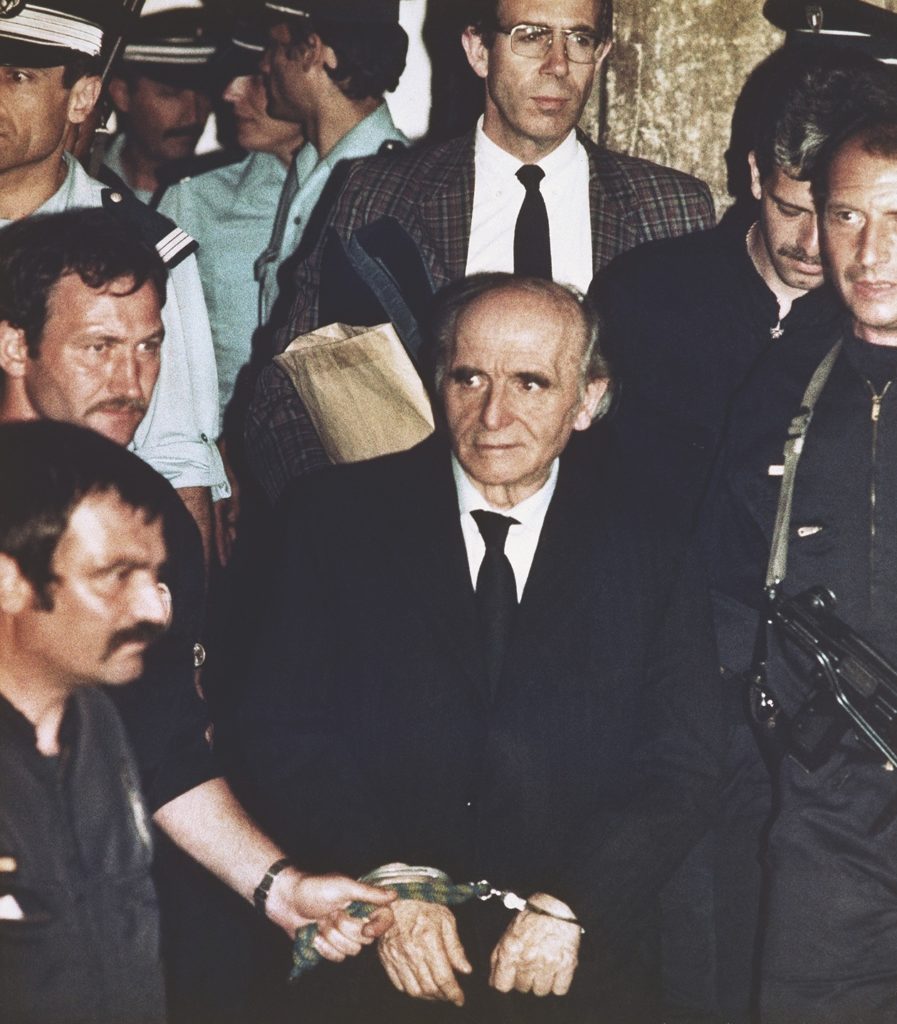
Barbie, surrounded by some of his fond admirers